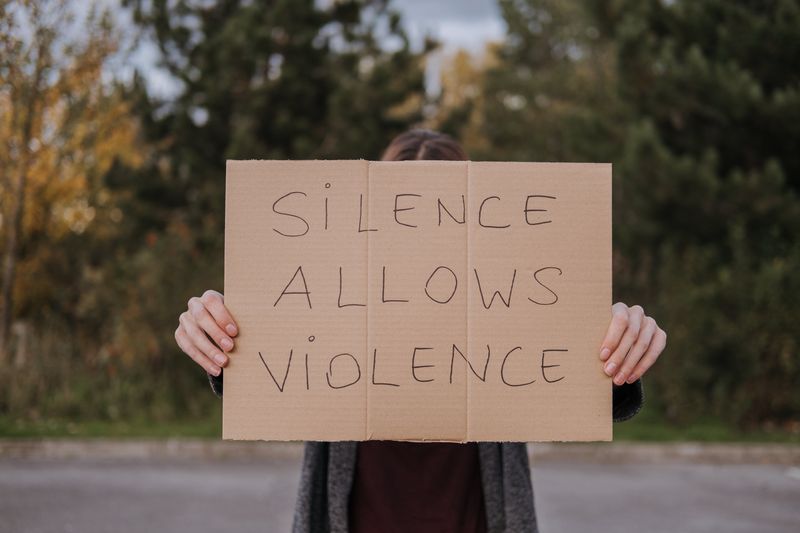Table of Contents
Verdict Pending in Murder Case of Indigenous Activist Billy Rakchongcharoen
Background
Five years after the disappearance of Indigenous Karen human rights defender Pholachi ‘Billy’ Rakchongcharoen, the Thai judicial system is now set to deliver its long-awaited verdict on Thursday, September 28th, for the four individuals accused of his enforced disappearance and murder. Billy’s courageous pursuit of justice ultimately cost him his life, inflicting immeasurable pain and suffering on his family. Amidst a years-long nightmare of heartbreak, obfuscation, and lies, they desperately sought the truth and now deserve to know the full story.
Billy was last seen on April 17, 2014, leaving the Kaeng Krachan National Park, where he had allegedly been detained by park officials on charges of illegally possessing wild bee honey. At the time, Billy was en route to meet with Indigenous Karen villagers and prepare for an upcoming hearing in their lawsuit against park officers, who were accused of forcibly evicting local communities and burning Karen homes. Disturbingly, Billy’s arrest and detention seemed intricately tied to these proceedings. He was also carrying case files related to the lawsuit, which have never been recovered.
After a five-year search, the Department of Special Investigation (DSI) announced on September 3, 2019, that Billy’s remains had been discovered in a burned oil barrel at the bottom of a reservoir within the Kaeng Krachan National Park, the same location where he was last seen in custody of the park officials. Subsequently, the DSI recommended indicting four park officials, including the Chief Officer of the national park, for their alleged involvement in Billy’s arrest and detention.
The Quest for Justice
While the DSI’s progress in the investigation was unprecedented, the public prosecutor from the Department of Special Litigation, Division 1, shockingly dropped all charges against the suspects recommended by the DSI in January 2020. This development dealt a significant blow to the hopes of attaining justice for Billy’s family and the wider community that had been following the case.
However, in August 2022, the Office of the Attorney-General (OAG) made a pivotal decision by indicting the four suspects under five charges, including the abduction and murder of Billy. It should be noted that the accused individuals vehemently deny these charges.
The introduction of Thailand‘s Act on Prevention and Suppression of Torture and Enforced Disappearance in February 2023 represents a positive step forward, demonstrating the Thai government’s commitment to address this grave issue. Amnesty International has consistently called for the effective enforcement of this law in accordance with international human rights standards. Regrettably, since the law took effect after the indictment of the four officers accused in Billy’s case, they cannot be charged under its specific crime of enforced disappearance.
Implications for the Thai Judicial System
Amidst mounting global scrutiny, the upcoming verdict in Billy’s case poses a critical test for the Thai judicial system. The judiciary’s track record of failing victims of enforced disappearances must be rectified. This moment presents a unique opportunity for the Thai authorities to set a new standard in addressing enforced disappearances—one that aligns with international human rights law.
Beyond the trial itself, the Thai government should take this moment to demonstrate its leadership and commitment to ending the culture of impunity. It is imperative that they send a clear message to officials throughout the country: enforced disappearances will no longer be tolerated, and those responsible for such heinous crimes will be held accountable.
Path Towards Prevention and Justice
In light of this case and the larger issue of enforced disappearances in Thailand, Amnesty International calls on the new Thai government to immediately accede to the International Convention for the Protection of All Persons from Enforced Disappearance (ICPPED) and the Optional Protocol to the Convention against Torture and other Cruel, Inhuman, or Degrading Treatment or Punishment (OPCAT).
Such a commitment from the Thai government would reflect a genuine desire to prevent the recurrence of crimes as brutal as those committed against Billy. It would also underline their commitment to ensuring that those responsible are promptly brought to justice.
A Plea for Justice
The verdict in Billy Rakchongcharoen’s case carries immense weight, not just for his family and the Indigenous Karen communities, but for the entire Thai judicial system. It is a litmus test that will reveal whether the judiciary is capable of addressing human rights violations and upholding the principles of justice within the country.
As the world closely watches the outcome, one can only hope that the Thai judicial system will rise to the occasion. By delivering a verdict that reflects truth, accountability, and a commitment to international human rights norms, Thailand would take a significant step forward in its journey toward justice and reconciliation.

<< photo by Anete Lusina >>
The image is for illustrative purposes only and does not depict the actual situation.
You might want to read !
- Thailand’s Verdict on Murdered Indigenous Activist ‘Billy’: Seeking Justice for a Nation
- The Power of the People: How Activism is Transforming the Fight Against Air Pollution
- Citizen Crusaders: Mobilizing the Masses to Combat Air Pollution
- Hong Kong’s Landmark Ruling: A Glimmer of Hope for LGBTI Rights in Asia
- Burundi: Persistent Demands for Journalist’s Release, One Year Later
- Youth Standing for Climate Justice: Landmark Case Heads to the European Court of Human Rights
- Where Do We Draw the Line? Examining the Legal Dilemmas Surrounding Volunteer Aid for Migrants in Poland